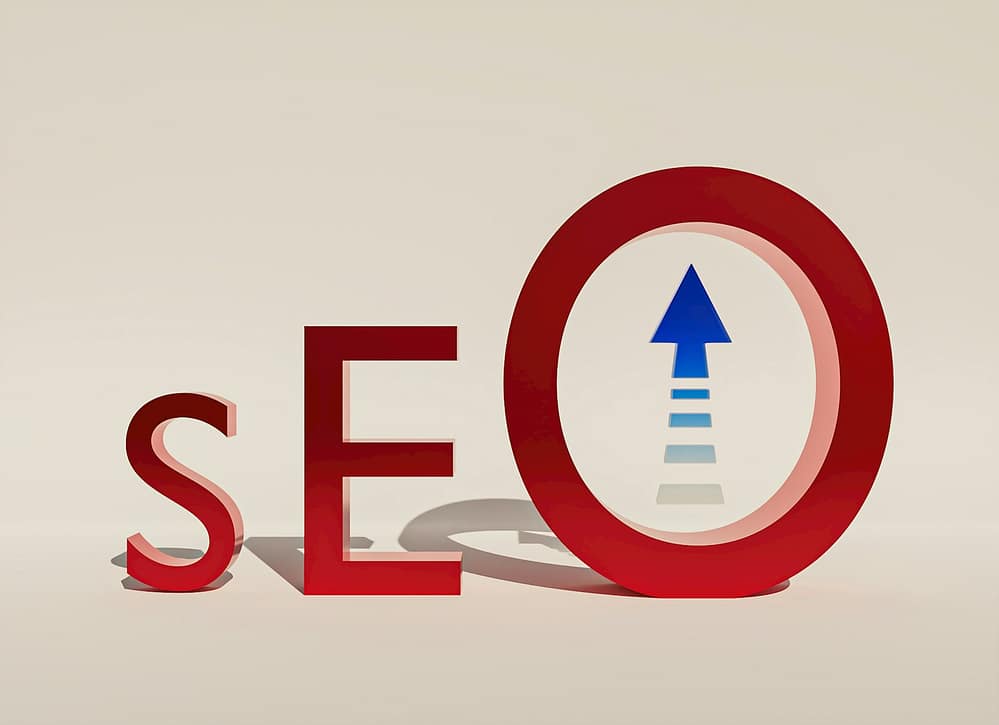What is SEO? Complete Beginner’s Guide to SEO, Its Uses & How to Use It (With Humor)
Search Engine Optimization (SEO) sounds like a complicated tech term, but it’s really just the process of making your website more attractive to search engines like Google, Bing, and Yahoo — so they can recommend it to people searching for information, products, or services you offer.
Think of it like online dating for your website: your goal is to make your profile (site) appealing enough for the matchmaker (search engine) to put you at the top of the dating list (search results). And trust me, just like dating apps, if your “profile picture” (website design) looks blurry or outdated, no one’s swiping right.
Table of Contents
What is SEO?
SEO is both a science and an art.
The science part: It involves understanding how search engines work, how algorithms rank websites, and how to apply technical tweaks to improve your site’s performance.
The art part: It’s about creating content people actually want to read, making it engaging, and convincing both humans and robots that your site is worth visiting.
When I first learned SEO, I thought it was all about tricking Google — stuffing keywords, hiding text, buying spammy backlinks. Turns out, Google got smart (like “scary smart”) and now focuses on rewarding genuine, high-quality, user-friendly websites.
So if you try to fool Google in 2025, it’s like trying to hide snacks from a professional sniffer dog — you will get caught.
Related Read: What Exactly is Digital Marketing? Why You Need It and How to Start
Why SEO Matters
Let’s get real — SEO matters because without it, your website might as well be invisible. Imagine opening a bakery but putting it in the middle of a forest with no roads, signs, or maps. Sure, your cupcakes might be amazing, but no one’s going to wander in unless they get lost hiking.
With SEO, you’re basically building roads, putting up billboards, and handing out GPS coordinates so people can find you.
I actually tried this with my first blog — except instead of a forest, it felt like I had opened shop on Mars. No traffic, no visitors, just me refreshing my own site (most of my “visitors” were me).
The Uses of SEO
1. Bringing in Organic Traffic
This is the unpaid traffic you receive from search engines when visitors discover your site organically—without spending money on ads. It’s like having a shop in the busiest part of town where people just walk in because they saw you.
When I started my first blog, I relied on social media shares for traffic. Every time I stopped posting, my traffic dropped like a phone without a case (and yes, I’ve cracked too many screens to use that example lightly). But once I learned SEO, my site got steady visitors even when I was binge-watching Netflix instead of writing.
Related Read: How to Advertise a Website: A Step-by-Step Guide for Beginners
2. Building Authority and Trust
When your website appears in the top results, people subconsciously assume you’re an expert. That confidence drives more clicks, boosts engagement, and ultimately results in increased sales or subscriber growth.
In the offline world, it’s like being recommended by someone respected — if Oprah says your muffins are good, you’re going to sell a lot of muffins.
In my case, when a small blogger linked to me, I felt like I’d just been knighted by Google.
External Resource: Moz – Beginner’s Guide to SEO
3. Improving User Experience
SEO forces you to make your site clean, fast, and easy to use. A well-optimized site has intuitive navigation, quick load times, and mobile-friendly design.
I once clicked on a site that took so long to load, I made coffee, checked Instagram, and came back — it was still loading. No one’s waiting that long for your content.
4. Long-Term Results
Unlike paid ads, SEO continues delivering results long after you’ve stopped spending. Sure, it takes time to build up rankings, but once you get there, the benefits can last for years.
I still get traffic from articles I wrote in 2018 — I’ve updated them a bit over the years, but the bulk of the work was done once. That’s the beauty of SEO.
5. Competitive Advantage
If your competitors are ranking higher, they’re getting more customers. With SEO, you can leapfrog them, take their spot, and enjoy the benefits of being on top.
It’s basically legal theft — but instead of stealing, you’re just better at showing up.
Related Read: How to Start a Tech Business Step by Step
How to Use SEO (Step-by-Step)
Step 1: Keyword Research — The Treasure Hunt
Keywords are the foundation of SEO. These are the words and phrases your audience types into search engines.
- Short-tail keywords: 1–2 words, like “shoes” or “pizza.” High search volume but lots of competition.
- Long-tail keywords: 3+ words, like “best running shoes for flat feet.” Lower competition and more targeted.
Tools to help you find keywords:
- Google Keyword Planner (free)
- Ubersuggest (beginner-friendly)
- Ahrefs / SEMrush (professional tools)
Personal tip: Don’t aim only for high-traffic keywords — go for those with a balance of volume and competition. I once tried ranking for “SEO tips” (massive competition). My article got buried faster than my high school poetry collection.
Step 2: Create High-Quality Content — Your SEO Magnet
Your content should do three things:
- Answer the user’s question completely.
- Be easy to read and engaging.
- Include your target keywords naturally.
I remember writing one article that basically said, “Use SEO to rank on Google.” Brilliant advice, right? Yeah… Google didn’t think so.
Related Read: What is Affiliate Marketing? Why You Should Care and Where to Start
Step 3: On-Page SEO — Dressing Up Your Content
Here’s how to make your page attractive to search engines:
- Title Tag: Include your main keyword and make it clickable.
- Meta Description: A 150–160 character summary that encourages clicks.
- Headings: Use H1 for the main title, H2 for sections, and H3 for sub-points.
- URL: Keep it short and keyword-rich (
example.com/bread-recipes). - Images: Use descriptive filenames and alt text for accessibility and SEO.
Trust me, nobody wants to click on example.com/2025/03/15/ugly-long-title-with-12-keywords. It screams amateur hour.
Step 4: Technical SEO — The Behind-the-Scenes Work
This is the geeky stuff that makes your site faster, more secure, and easier to crawl.
- Mobile-Friendly Design
- Fast Loading Speed
- SSL Certificate (HTTPS)
- Sitemap
External Resource: Google’s Mobile-Friendly Test
Step 5: Link Building — Getting Internet Street Cred
Think of backlinks as recommendations from other websites, signaling to search engines, “This page is worth your attention.”
I once got so excited about a backlink that I celebrated with pizza. Yes, one backlink = one pizza — it was a good system.
Step 6: Monitor, Update, Repeat
SEO isn’t one-and-done. Check your analytics, see what’s working, update old content, and adapt to changes in Google’s algorithm.
Updating old posts sometimes feels like cleaning your room — you know it’s necessary, but you keep putting it off until it’s a disaster.
External Resource: Google Analytics
Common SEO Mistakes Beginners Make
- Keyword Stuffing: Guilty. My early posts read like: “SEO tips SEO tips SEO tips please love me Google SEO tips.” Spoiler: Google didn’t.
- Overlooking Mobile Visitors: In 2025, a non-mobile-friendly site might as well not exist.
- Copying Content: Duplicate content = bad rankings.
- Neglecting Analytics: If you’re not tracking, you’re guessing.
- Chasing Trends Blindly: Just because everyone is writing about AI tools doesn’t mean it fits your niche.
Personal Tips from My SEO Journey
When I first started few years ago, I treated SEO like a magic trick — throw in some keywords, wave a wand, and poof! Rankings.
Reality check? It’s more like cooking a slow stew — you add ingredients (keywords, content, links), keep stirring (updating), and wait for the flavors (rankings) to develop.
I’ve also learned:
- Patience pays off — Rankings take time.
- Quality beats quantity — One great article can outperform ten mediocre ones.
- SEO never stops — The internet evolves, and so should you.
Conclusion: SEO is a Long Game
SEO is a highly effective way to expand your online presence — but it’s far from a quick fix. It’s a steady, strategic process that rewards consistency, creativity, and user focus.
Do it right, and you’ll have a self-sustaining traffic machine. Do it wrong, and you’ll spend your time wondering why Google keeps ignoring you like that one ex.
So start small, keep learning, and remember: the best SEO strategy is to create something worth finding.
Next Step: How to Host Your Website on Cloud Hosting: A Step-by-Step Guide
Hi, I’m Prince Stephen Mordi, the mind behind Voob.com.ng. I write simple, beginner-friendly guides on tech, blogging, and making money online. My goal is to help you navigate the internet without headaches—because tech doesn’t have to be complicated!





You are doing great job.
Thank you very much